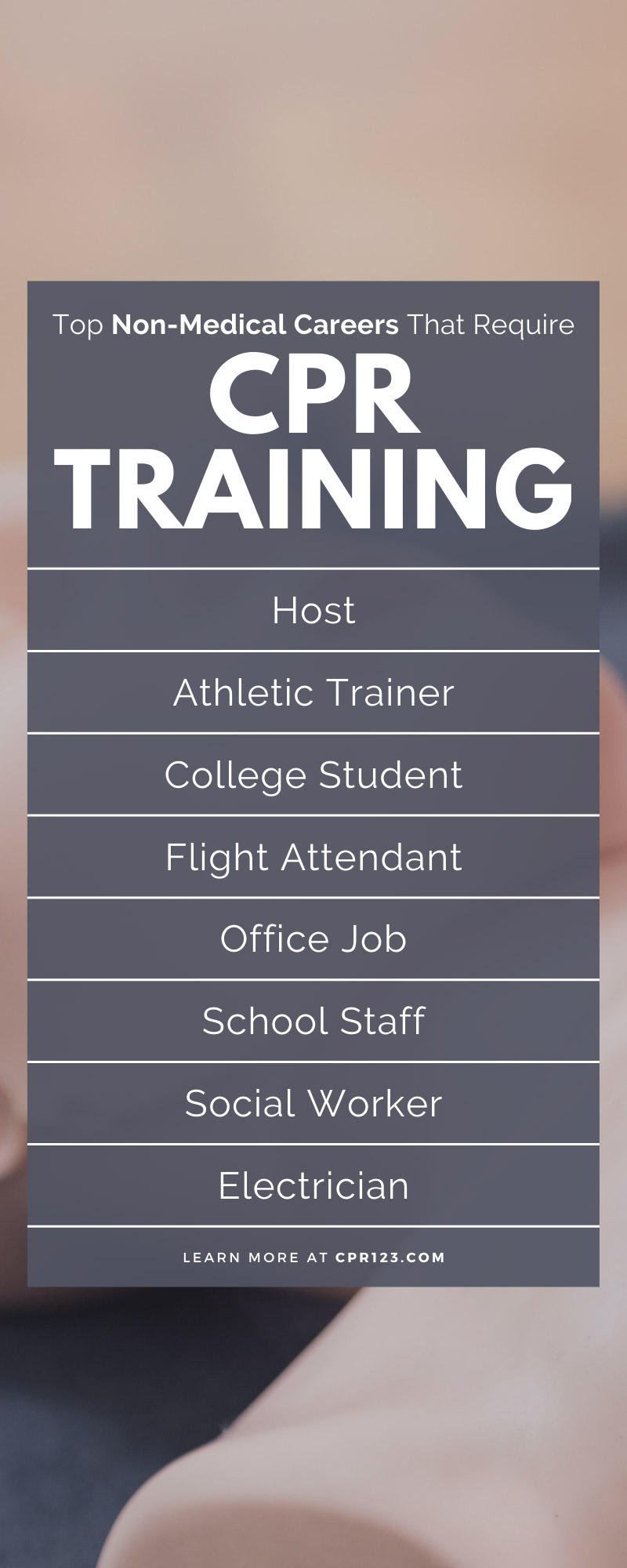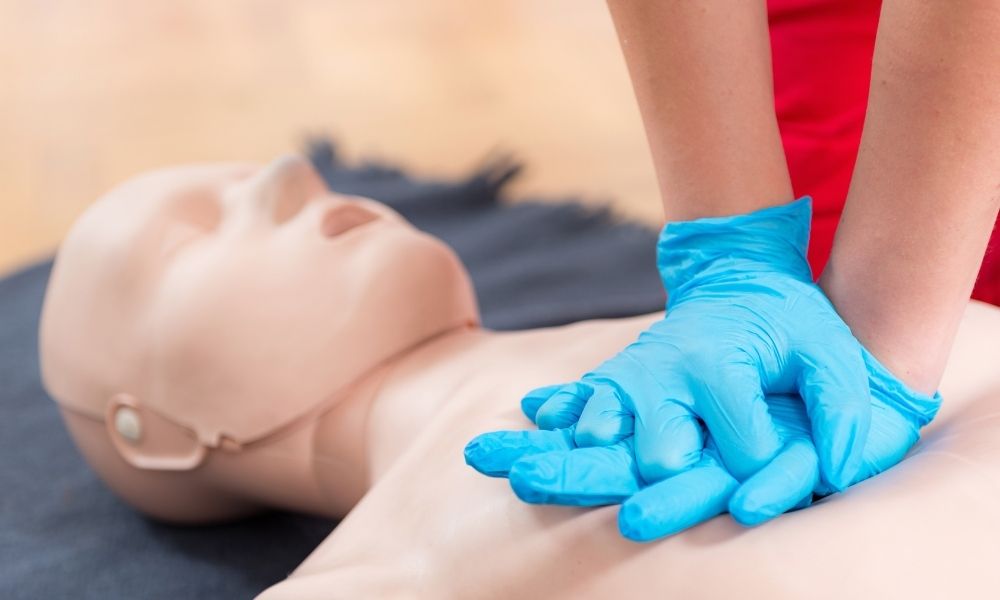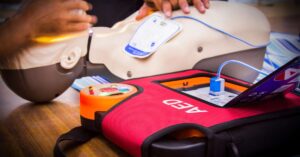On your job hunt, it will be helpful to know the top non-medical careers that require CPR training. You don’t want to suddenly discover you must receive medical training for a job you thought had nothing to do with that field. These certification requirements are in place to keep everyone safe, no matter the position. Some of these careers may seem like a given, while others might surprise you. Keep reading to learn more.
Host
While working the fast-paced life as a server, you meet countless people of all ages and lifestyles. With guests eating, drinking, and having a jolly time with their friends, someone’s epiglottis might find itself in the crossfire during a particularly hefty chuckle. Due to events like this, some restaurants may require you to learn CPR or First Aid. Knowing how to administer CPR or the Heimlich maneuver may seriously come in handy at some point in your serving career.
Athletic Trainer
Being employed as an athletic trainer is one of the top non-medical careers that require CPR training. It may be self-explanatory, but as a trainer, you will surround yourself with people of varying health and lifestyles, all of whom are getting their heart pumping and blood rushing. What’s more, in the age of the supplement, many of your clients and consistent gym-goers are intaking enhancements of all kinds. Knowing how to administer CPR when you work in a gym setting can prove helpful as, quite literally, anything can happen—especially when you have so many people from all walks of life pumping their hearts to the max.
College Student
When you are a student, your college career is a full-time job, but it is just one for which you are not receiving monetary compensation. Think about the fact that you will surround yourself with other classmates who are in highly stressful situations and are likely not caring for themselves properly. Whether you are at a football game, party, or tailgate, disaster has no boundary and can strike at any moment. In that, learning CPR is a crucial skill that every student should know.
As you prepare yourself for the workforce, especially for any of the ones on our list here, having a CPR certification is a little something special to include on your resume. It might even put you a hair above the rest. Keep this in mind as you build your numerous credentials throughout your college career.
Flight Attendant
Imagine this: you are 30,000 feet in the air when suddenly, a guest doubles over, clutching their chest. You look around and ask if anyone is a doctor, and to your dismay, everyone averts their eyes. It is all on you now—and it’s a good thing you know CPR. In the air, there is only a limited number of people on board, and you won’t always have a medical professional to help in an emergency. As such, almost every airline will require their flight attendants to have their CPR certifications.
The dramatic scenario above may never happen in your career as a flight attendant. Nonetheless, you should still know how to administer CPR. CPR123 offers American Heart Association courses like CPR, First Aid, and more. Another plus is that you can quickly receive your certification online, so you can get right to flying!
Office Job
Although a hilarious episode of The Office, learning CPR and First Aid for your corporate job can actually be a reality. In the event of an emergency, knowing how to administer CPR may give your coworkers or employees the crucial time needed for Emergency Services to arrive and hastily transport them to a hospital. Due to this, many corporate settings may require you to attend a seminar to earn your CPR certification. What’s more, as a corporation, you can even organize for your training to be on-site, and employees can also learn CPR, First Aid, and Heartsaver courses.
School Staff
While schools try to do everything they can to avoid any contaminations regarding allergies, accidents still occur. Therefore, learning how to administer CPR will prove to be quite a beneficial skill to know. Children and pre-teens are a rowdy bunch, so a skimmed knee is an often occurrence. No matter what your occupation is on the school campus, First Aid and CPR will also prove extremely useful and provide parents with peace of mind as they know their children are will be taken care of if the case of an emergency.
This important information to know if you will be working with kids. As a babysitter, nanny, or camp counselor, knowing CPR will be a beneficial tool to have on your belt and might be the extra qualification that gets you hired.
Social Worker
In the same vein as teachers and school staff, you will often be working with children and families in need of the assistance of a social worker. Most of the children you’ll interact with usually have had difficult and stressful lives and live with various mental and behavioral challenges. Due to this, learning CPR and First Aid will likely be a requirement when taking on a social worker role. Having a CPR certification before you begin applying to jobs may streamline your hiring process, as you won’t have to spend extra time taking any lessons.
What’s more, when potential employers are looking at your credentials, they may be more inclined to hire you when they see you have these certifications, as it says you already have the well-being of children at the forefront of your mind.
Electrician
Working with electricity is a dangerous job, and while electricians act with the utmost care and attention for the safety of themselves, coworkers, and clients, anything can happen. This is why it is essential to prepare yourself the best of your abilities. A simple electrical shock can quickly damage a heart; thus, knowing what to do in this situation can save someone’s life. Moreover, The Occupational Safety and Health Administration, otherwise known as OSHA, strongly recommends that anyone working with exposed line or energized equipment should obtain CPR training.








